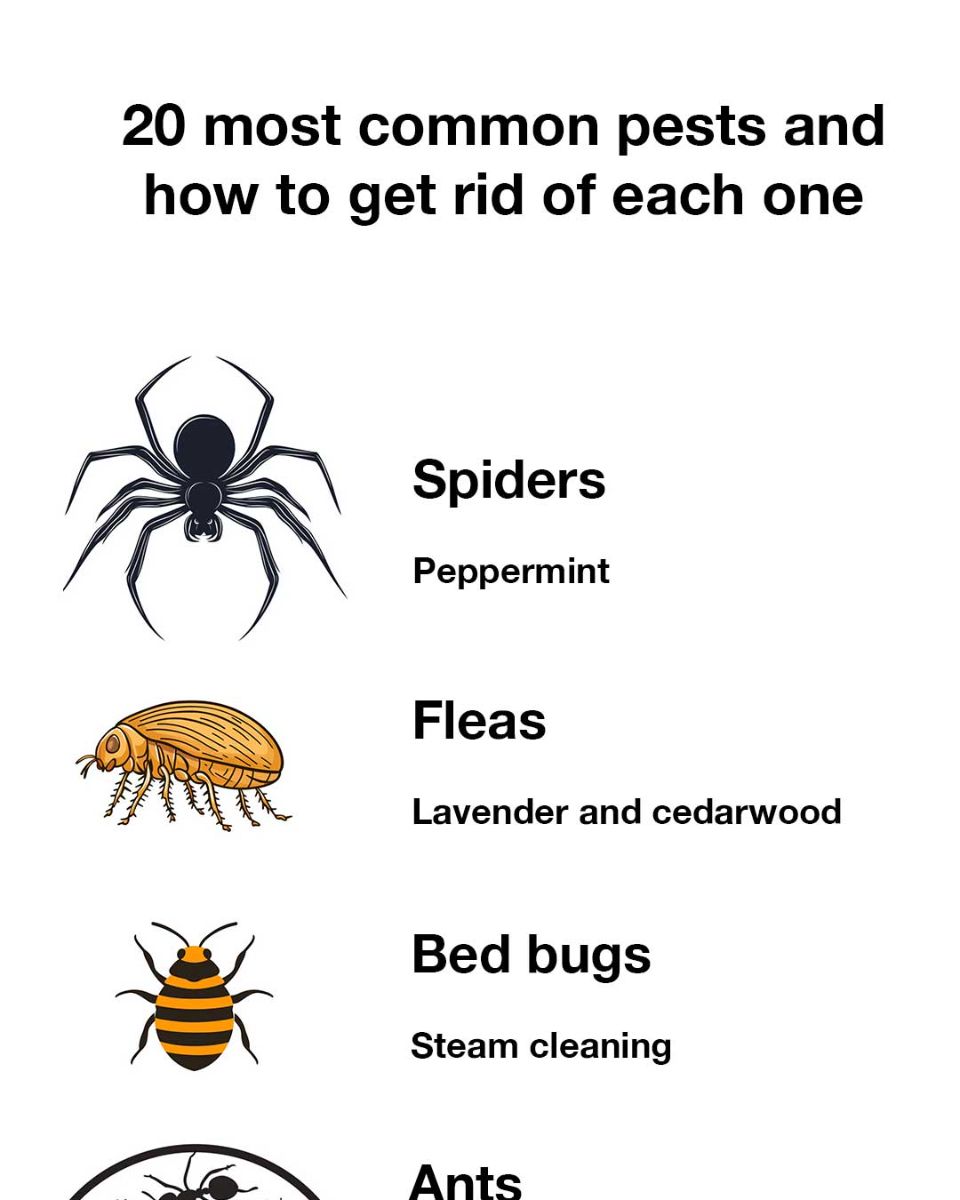Cockroaches thrive in warm, humid environments. Effective natural deterrents include:
Boric Acid: A natural toxin that damages cockroach digestive systems.
Essential Oils (Peppermint & Eucalyptus): Repels cockroaches with strong scents.
Eliminating Moisture: Fixing leaks and reducing humidity prevents cockroaches from thriving.
10. Mosquitoes: Effective Natural Repellents
Mosquitoes spread diseases and are a persistent nuisance. Natural repellents include:
Citronella & Lemon Eucalyptus Oil: Both contain compounds that repel mosquitoes effectively.
Standing Water Removal: Eliminating stagnant water prevents mosquito breeding.
Mosquito Nets & Fans: Physical barriers and air circulation deter mosquitoes from landing.
11. Rodent Control: Natural Ways to Deter Mice and Rats
Rodents pose health risks and damage property. Prevention methods include:
Peppermint Oil: Its strong scent repels mice and rats.
Ultrasonic Pest Repellers: Emit frequencies that disturb rodents but are inaudible to humans.
Sealing Cracks & Food Storage: Blocking entry points and storing food securely prevents infestations.
12. Termite Prevention and Natural Treatment Options
Termites cause structural damage. Natural control methods include:
Orange Oil: Contains d-limonene, which kills termites on contact.
Physical Barriers: Installing sand or metal mesh barriers around foundations prevents termite access.
Routine Inspections & Moisture Control: Detecting early infestations and reducing wood moisture prevents termite problems.
13. Silverfish: Natural Remedies and Prevention Strategies
Silverfish thrive in dark, humid areas. Effective natural remedies include:
Diatomaceous Earth (DE): Dehydrates and kills silverfish.
Cedar Oil Spray: Acts as a natural repellent.
Humidity Reduction: Using dehumidifiers keeps environments less favorable for silverfish.
14. Dealing with House Flies: Natural Solutions
House flies spread bacteria. Natural prevention methods include:
Fly Traps (Sugar & Vinegar Mix): Attracts and drowns flies.
Essential Oils (Basil & Lavender): Natural fly repellents.
Proper Waste Disposal: Regularly emptying trash bins prevents breeding.
15. Natural Ways to Manage Earwig Infestations
Earwigs prefer damp environments and feed on plants. Prevention strategies include:
Diatomaceous Earth (DE): Causes dehydration, killing earwigs.
Soapy Water Traps: Attracts and drowns earwigs.
Moisture Control: Reducing damp areas around the home prevents infestations.
16. Controlling Carpenter Ants Naturally
Carpenter ants weaken wooden structures. Natural deterrents include:
Boric Acid: Disrupts their digestive systems, killing them.
Tea Tree Oil Spray: Deters carpenter ants from nesting.
Woodpile Management: Keeping firewood away from structures reduces nesting opportunities.
17. Natural Methods to Repel and Eliminate Ticks
Ticks transmit diseases like Lyme disease. Preventative strategies include:
Essential Oils (Eucalyptus & Neem): Naturally repel ticks from pets and clothing.
Maintaining Landscaping: Keeping grass short and shrubs trimmed reduces tick populations.
Tick Tubes: Contain treated cotton that eliminates ticks before they mature.
18. Natural Remedies for Stink Bugs
Stink bugs release a foul odor when disturbed and can damage plants. Natural control methods include:
Neem Oil: Disrupts stink bug reproduction and deters them from plants.
Garlic Spray: A homemade solution of garlic and water repels stink bugs with its strong scent.
Sealing Cracks & Entry Points: Prevents stink bugs from entering homes in colder months.
19. Preventing and Eliminating Mealybugs Naturally
Mealybugs infest plants, sucking the sap and causing damage. Effective natural solutions include:
Rubbing Alcohol & Cotton Swabs: Directly applying alcohol kills mealybugs on contact.
Neem Oil Spray: Prevents infestations by disrupting their life cycle.
Introducing Natural Predators: Ladybugs and lacewings feed on mealybugs and help control populations.
20. Natural Control for Slugs and Snails
Slugs and snails destroy plants by feeding on leaves and stems. Natural methods for control include:
Diatomaceous Earth (DE): Creates a barrier that dehydrates and kills them.
Beer Traps: Burying a container of beer lures slugs in, where they drown.
Copper Tape: Placing copper barriers around garden beds repels slugs with mild electric shocks.
Conclusion: Maintaining a Pest-Free Home Naturally
Maintaining a pest-free home requires vigilance and a combination of preventive measures and natural remedies. Regular cleaning, sealing entry points, and using natural repellents can effectively manage pest populations without the need for harsh chemicals. By understanding the habits and preferences of common household pests, homeowners can create an environment that is inhospitable to these unwelcome guests.

